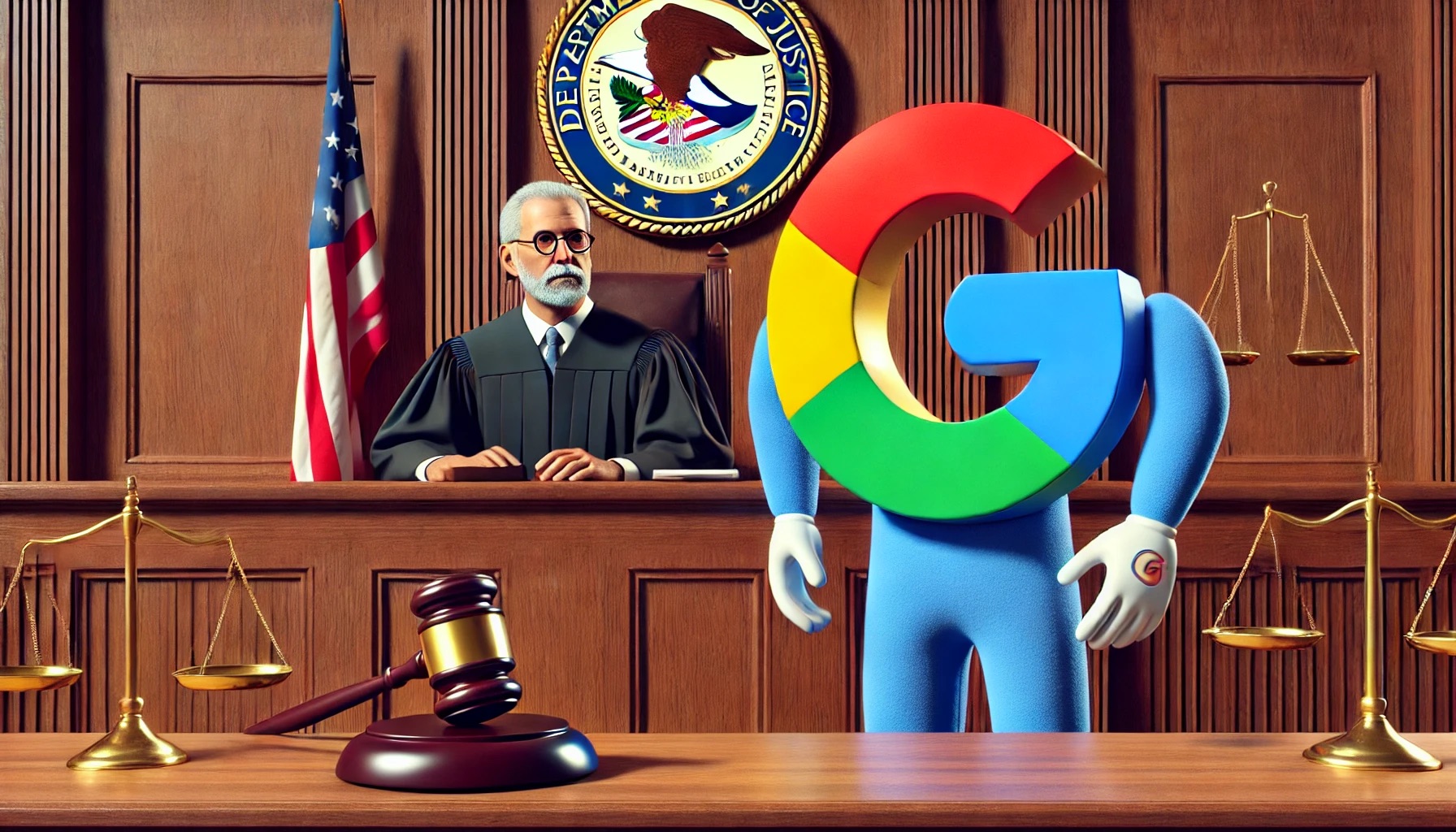A US judge declined to postpone the Department of Justice's antitrust trial against Google, slated for April, despite potential policy shifts under President Trump's administration. The DOJ alleges Google's illegal monopoly in search and advertising, proposing drastic remedies like selling Chrome and limiting AI activities.
US Judge Rejects Trump-Era Delay in Google Trial
The judge presiding over the case announced on Tuesday that the Trump administration will not be granted additional time to alter its request to limit Google's dominance in online search and that the trial on the US Department of Justice's proposals to do just that will go as scheduled, Reuters reports.
In an effort to cut off Google Search's distribution points, the Department of Justice has suggested that Alphabet's Google sell its Chrome browser and maybe the Android mobile operating system. In October, then-candidate Trump voiced his doubts regarding a possible Google split.
U.S. District Judge Amit Mehta of Washington stated that he would not postpone the April trial if Trump-appointed DOJ officials intend to change the proposals.
DOJ Lawsuit Highlights Google’s Alleged Search Monopoly
"If there is going to be a re-evaluation of the remedies that are being requested, it needs to be done quickly," the judge stated during the hearing.
Near the end of Trump's first term in office (2020), the Department of Justice filed suit against Google. Google has an unlawful monopoly in internet search and related advertising, according to a ruling by Mehta in August.
Under U.S. President Joe Biden, the Department of Justice has suggested that Google sells the most popular web browser in the world and shares data and search results with competitors.
Furthermore, according to US News, the comprehensive plan aims to forbid Google from acquiring or investing in competing search engines, query-based AI technologies, or advertising technology.
Google Challenges DOJ Over AI and Search Restrictions
The tech giant has decried the plans, describing them as "staggering," and claimed they will hurt American productivity.
The impact of AI on the search engine landscape is anticipated to be a central focus of the trial. Microsoft, Meta Platforms, OpenAI (the creator of ChatGPT), and Perplexity (an artificial intelligence startup) are all expected to be called as witnesses by the prosecution.



 Samsung and SK Hynix Shares Hit Record Highs as Nvidia Earnings Boost AI Chip Demand
Samsung and SK Hynix Shares Hit Record Highs as Nvidia Earnings Boost AI Chip Demand  Paramount Skydance to Acquire Warner Bros Discovery in $110 Billion Media Mega-Deal
Paramount Skydance to Acquire Warner Bros Discovery in $110 Billion Media Mega-Deal  Hyundai Motor Group to Invest $6.26 Billion in AI Data Center, Robotics and Renewable Energy Projects in South Korea
Hyundai Motor Group to Invest $6.26 Billion in AI Data Center, Robotics and Renewable Energy Projects in South Korea  Trump Orders Federal Agencies to Halt Use of Anthropic AI Technology
Trump Orders Federal Agencies to Halt Use of Anthropic AI Technology  USITC to Review Impact of Revoking China’s PNTR Status, Potentially Raising Tariffs on Chinese Imports
USITC to Review Impact of Revoking China’s PNTR Status, Potentially Raising Tariffs on Chinese Imports  BlueScope Steel Shares Drop After Rejecting Revised A$15 Billion Takeover Bid
BlueScope Steel Shares Drop After Rejecting Revised A$15 Billion Takeover Bid  Coupang Reports Q4 Loss After Data Breach, Revenue Misses Estimates
Coupang Reports Q4 Loss After Data Breach, Revenue Misses Estimates  Apple to Begin Mac Mini Production in Texas Amid $600 Billion U.S. Investment Plan
Apple to Begin Mac Mini Production in Texas Amid $600 Billion U.S. Investment Plan  Anthropic Resists Pentagon Pressure Over Military AI Restrictions
Anthropic Resists Pentagon Pressure Over Military AI Restrictions  Amazon’s $50B OpenAI Investment Tied to AGI Milestone and IPO Plans
Amazon’s $50B OpenAI Investment Tied to AGI Milestone and IPO Plans  Snowflake Forecasts Strong Fiscal 2027 Revenue Growth as Enterprise AI Demand Surges
Snowflake Forecasts Strong Fiscal 2027 Revenue Growth as Enterprise AI Demand Surges  Microsoft Gaming Leadership Overhaul: Phil Spencer Retires, Asha Sharma Named New Xbox CEO
Microsoft Gaming Leadership Overhaul: Phil Spencer Retires, Asha Sharma Named New Xbox CEO  Russia Signals Openness to U.S. Security Guarantees for Ukraine at Geneva Peace Talks
Russia Signals Openness to U.S. Security Guarantees for Ukraine at Geneva Peace Talks  OpenAI Faces Scrutiny After Banning ChatGPT Account of Tumbler Ridge Shooting Suspect
OpenAI Faces Scrutiny After Banning ChatGPT Account of Tumbler Ridge Shooting Suspect  Pentagon Weighs Supply Chain Risk Designation for Anthropic Over Claude AI Use
Pentagon Weighs Supply Chain Risk Designation for Anthropic Over Claude AI Use  Pakistan-Afghanistan Tensions Escalate as Taliban Offer Talks After Airstrikes
Pakistan-Afghanistan Tensions Escalate as Taliban Offer Talks After Airstrikes  Germany and China Reaffirm Open Trade and Strategic Partnership in Landmark Beijing Visit
Germany and China Reaffirm Open Trade and Strategic Partnership in Landmark Beijing Visit 































